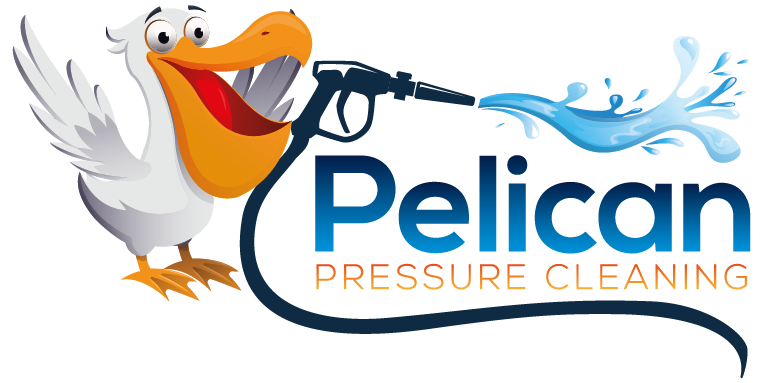Garden pests can be a real headache for anyone who enjoys cultivating a green space. Whether you have a small collection of plants or a sprawling backyard of vibrant flowers and shrubs, keeping these invaders in check is a must. While a garden can be a source of relaxation and joy, it’s no fun when pests invade and start causing damage. It’s important to catch them early to prevent widespread problems. Spotting them quickly can make all the difference, like handling a paper cut before it becomes infected.
It’s a common sight on the Sunshine Coast—lush gardens thriving under the sun, only to have their growth stunted by unwelcome guests. These pests not only ruin the look of your garden but also affect the health of your plants. Early intervention is key. By understanding the types of pests, you can protect your garden more effectively. Let’s explore some practical steps to help you guard your garden against these little invaders.
Identify Common Garden Pests
Knowing your enemy is half the battle. On the Sunshine Coast, there are a few frequent troublemakers you should be aware of:
– Aphids: Tiny and often green, they gather on leaves and stems to suck sap. Look for curled leaves or sticky residue.
– Caterpillars: These hungry critters munch on leaves, leaving ragged edges or holes.
– Snails and Slugs: These pests usually come out at night. Their telltale slime trails and chewed leaves are signs of their presence.
– Whiteflies: Small white insects that fly around when plants are disturbed. They feed on sap, often causing yellowing leaves.
– Spider Mites: Tiny spiders that leave fine webbing on plants, often causing mottled leaves.
Spotting these pests early can save you from a heap of trouble. Examine the underside of leaves, around the base of plants, and any new growth where pests are likely to hide. If you find damage or unusual signs, act promptly. Hand-picking larger pests or washing them off with water can be effective for smaller infestations.
By familiarizing yourself with these common pests, you’ll be better equipped to tackle any problems as they arise. Early detection not only helps maintain the beauty of your garden but also ensures your plants stay healthy and productive. With a keen eye and timely action, you can keep your garden a thriving oasis.
Natural and Chemical Control Methods
Tackling pests doesn’t have to be a nightmare, and starting with natural methods can be a friendly way to manage your garden’s ecosystem. Here’s how:
– Beneficial Insects: Introduce insects like ladybugs and lacewings, which naturally prey on aphids and other soft-bodied pests, effectively keeping their numbers down.
– Organic Sprays: Neem oil or insecticidal soap can offer a gentle way to deter pests. These treatments are usually safe for plants and the environment while disrupting pests’ lifecycles.
When natural solutions aren’t enough, consider chemical options that are safe for use in home gardens. Always read the labels to ensure these are appropriate for your particular plants and pests. Some treatments target specific insects, reducing harm to beneficial species. This dual approach of natural and chemical options ensures your garden thrives.
Preventative Measures
Preventing pests from becoming a significant issue in your garden means staying one step ahead. Regular garden maintenance can be your best friend. Here’s what you can do:
– Barriers: Use netting or horticultural fleece to physically block out pests while allowing light and air to reach your plants.
– Mulching: A layer of mulch can deter pests like snails and slugs and keep moisture levels stable.
– Hygiene: Remove dead leaves or debris, where pests often hide and breed. Regularly cleaning up your garden can help disrupt their habitat.
Plant selection plays a significant role in pest prevention, too. Companion planting is more than just a gardening trend—certain plants naturally repel pests or attract beneficial insects. For instance, planting marigolds among vegetables can deter nematodes and other pests. By choosing the right plant combinations, you significantly reduce the likelihood of infestations.
When to Call the Professionals
Sometimes, despite your best efforts, pests can become overwhelming. Noticing these signs might indicate it’s time to seek help:
– Persistent infestations that do not respond to natural or chemical treatments.
– Damage that spreads rapidly, affecting a large portion of your garden.
– If you’re unsure of the pests you’re dealing with and need expert advice.
Professional pest control services can offer customised treatment plans, targeting problem areas effectively without damaging your plants. With expert help, you can maintain a healthy garden safely and thoroughly, ensuring your plants not only survive but thrive.
Safeguard Your Garden’s Health
Keeping your garden in top shape year-round means continuously paying attention to the signs of pest activity and acting promptly. By combining early detection with natural and chemical treatments, you effectively manage pests through each season. Whether you’re embracing companion planting or setting up barriers, each action helps maintain a garden that remains beautiful and productive.
Maintaining a proactive stance against garden pests will ensure your space is always a pleasure to spend time in. By cultivating a comprehensive approach, including both prevention and timely intervention, you nurture not just your plants but your entire garden experience. Let the garden grow without the threat of harmful pests, preserving its beauty and vibrancy for future enjoyment.
Experience peace of mind with your garden by choosing the best pest control on the Sunshine Coast. Pelican Pressure Cleaning is ready to help you maintain your garden’s health. Whether you’re dealing with stubborn pests or looking for expert support, we’re here to keep your outdoor space looking its best.
